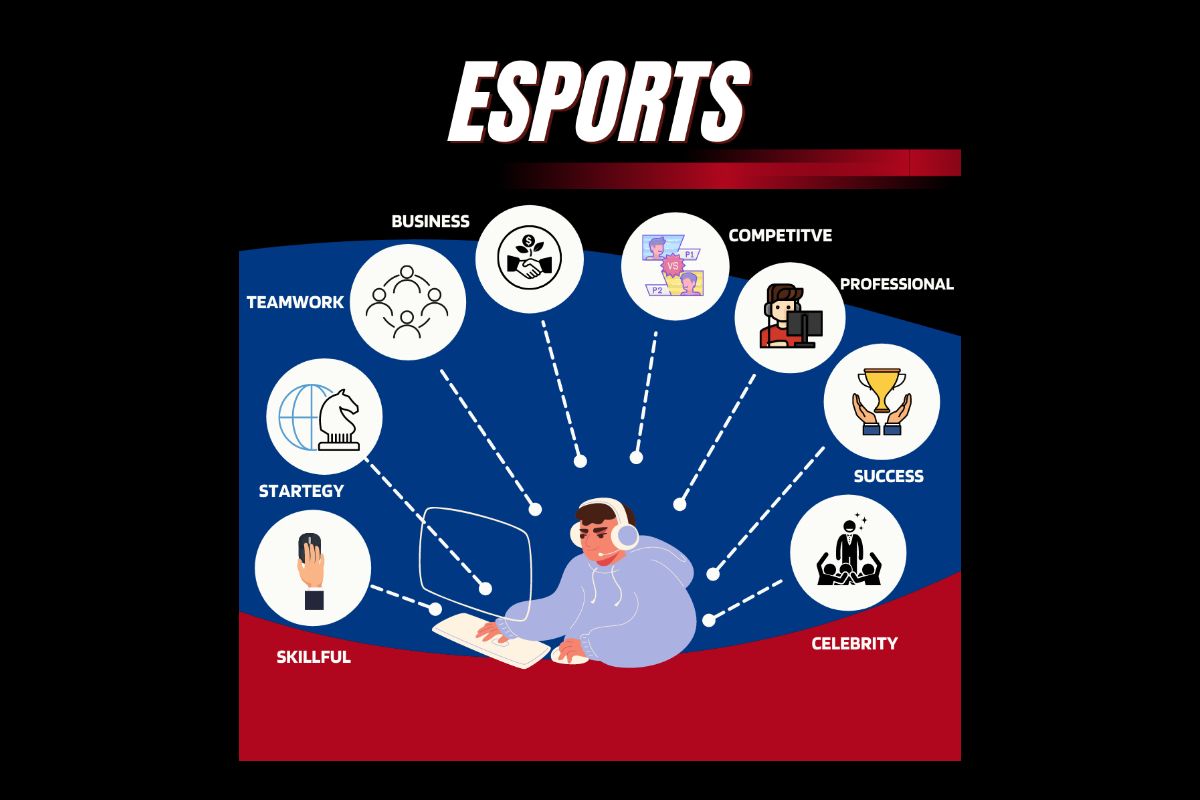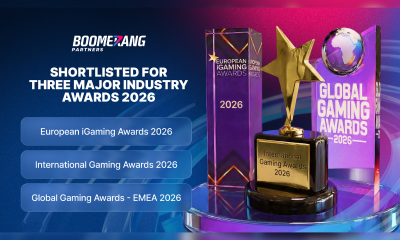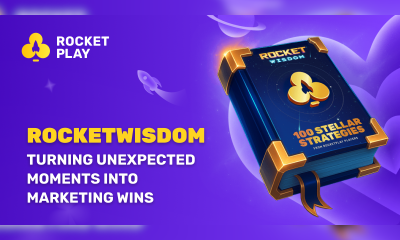Asia
How Esports is a real sport, and must not be clubbed with iGaming, Fantasy, or other gaming categories

The tremendous rise of competitive gaming is the greatest phenomenon of the 21st century. Once emerged as a hobby for many, competitive gaming gradually turned into a very professional and disciplined system.
Pandemic 2020 proved a significant year for Esports both in terms of increased engagement and its growing acceptance. With more time in hand being indoors, gaming became a viable option for entertainment. This amazing growth introduced competitive gaming to an entirely new breed of highly engaged audiences. Player participation in competitive gaming along with viewership for Esports events saw a significant spike.
As per statistics, Indian Esports accounted for around 4% of all online gaming users and 9.13% of aggregate revenue in FY20. In 2020, Esports viewership increased to 17 million and is projected to reach 85 million by 2025. India’s esports industry is set to quadruple in size to Rs 1,100 crore by 2025 from Rs 250 crore at present—clocking a compounded annual growth rate of 46%, according to an EY report.
Tarun Gupta, Founder, Ultimate Battle, which is India’s first-ever one-stop online esports platform, explained why Esports should not be clubbed in with iGaming, Fantasy, or other gaming categories.
Online Games are primarily divided into the following categories based on how the game is designed, the way the games are played, and the amount of skill required to play these games:
1. Card-based Games (ex. Poker, Rummy)
2. Casual Games (ex. Pool, Bubble shooting)
3. Fantasy Games (ex. Fantasy Cricket, Fantasy Football)
4. Esports (ex. DOTA 2, BGMI, VALORANT)
In India, people confuse esports with fantasy, rummy, or other casual games. There is no reason to associate these games with Esports. Esports is the organized form of video game competitions online and/or offline including video game genres of traditional sports, multiplayer online battle arena (MOBA), real-time strategy (RTS), and fighting & first-person shooter (FPS) games.
Esports games are designed with high indulging competitive experience in mind. The games have various elements to them which not only make them sporting in nature but also open opportunities for gamers to learn about the game, grow and become the best at it and compete at a professional level.
Esports is a Real Sport, Here is Why:
When you think of sports, count the things that quickly come into your mind? It surely would be fierce competition, physical activity, fans, practice, and adrenaline rush, etc. Moreover, we think of an Esports player sitting at a desk and staring at a screen all the time. Though Esports may not involve the same level of physical activities as compared to sports like football, athletes do need enough physical stamina, motor skills, and reflex to control gaming devices and compete well with the gameplay.
The amount of effort, practice, and discipline required by professional esports athletes is comparable to many popular sports. Despite all the statistics and data showing the steep growth in Esports over the past few years, there is still a debate going on- “Whether Esports can be categorized as real sports or if it’s a sport at all.”
Global sporting authorities have now started recognizing Esports as a sport. Recently the Olympic Council of Asia (OCA) announced that eight games including FIFA, PUBG, and Dota 2 will be a part of the Asian Games 2022. To recall, Esports was a demonstration event at the 2018 Asian Games held in Jakarta.
Let’s look into the similarities to traditional sports and find out why these similarities match up and make Esports a real sport all the way.
1. Game Mechanics
Game mechanics are the rules and set of methods that guide the gamer’s actions and interactions between the player and the game. The depth and dynamics of in-game mechanics for Esports game titles are just as vibrant as sports in their gameplay and strategic movements. Combining this with the depth of the game’s mechanics which keeps evolving makes Esports a top-notch sporting match. Esports players have to master the game’s mechanics and concentrate on learning and improving game-specific skills. These game mechanics help to make gaming an engaging and fun-filled experience.
2. Learning Curve of the Game
Like traditional sports, Esports has a steep learning curve that helps gamers become more proficient with the game and gain a deeper understanding of the game. The curve elevates further as the player progresses through the game. As difficulty levels add up further, gamers have to play with more refined gameplay strategies to fight and win. To succeed in Esports, you’ll have to be the best in terms of game skills along with team coordination, opponent research, critical thinking, and multi-tasking.
3. Physical prowess and Strategic Thinking
Dive deeper into Esports games and you will find both forms of sports have a lot in common. Throughout the game, Esport athletes are required to sustain high levels of attention to make important decisions under time pressure. This is also true in the case of athletes in Esports. Traditional sports require mostly athletic abilities and then strategies to make scores. Esports, on the other hand, requires players to have flash reflexes, an understanding of deep in-game mechanics as well as coping with changing dynamics of in-game strategies to be implemented during gameplay. Only the players with superb athletic ability and strategic understanding of games can coordinate to strike at the right time.
An esports gamer practices and hones their skills for hours in order to perfect their movements on the keyboard and mouse while simultaneously coordinating with teammates. The Esports athletes achieve up to 400 movements on the keyboard and the mouse per minute, four times as much as the average person. The whole thing is asymmetrical because both hands are being moved at the same time and various parts of the brain are also being used at the same time.
4. Practice and Training is essential
In terms of practice and training, Professional esports and traditional sports athletes share several common characteristics. Like traditional athletes, Esports professionals exhibit a commitment to excellence, perseverance, and a passion for their sport. Moreover, they both go through physical and mental training to fine-tune their athletic and gameplay abilities.
Esports athletes work hard to physically and mentally prepare themselves and practice for each competition that they are competing in.
Conclusion:
It requires rigorous training and efforts to become a professional Esports professional. Like other traditional sports, Esports athletes need to have qualities like concentration, precision, and execution that only come after the solid in-game experience. The government needs to take this into cognizance and bring Esports under the umbrella of policies and legislations of Sports.
Powered by WPeMatico
Asia
IESF Officially Opens the World Esports Championship 2025 in Kuala Lumpur

Reading Time: < 1 minute
The World Esports Championship 2025 (WEC25) is officially open in Kuala Lumpur, welcoming athletes, fans, and delegations from around the globe. With 19 nations taking part in Mobile Legends: Bang Bang (MLBB), this year’s event stands as the most internationally diverse MLBB competition in IESF history.
After a year filled with national and regional qualifiers and preparations from teams around the world, the world’s top esports athletes have arrived in Malaysia’s capital, Kuala Lumpur. The opening ceremony set the tone for the days ahead, offering fans a first glimpse of the excitement and atmosphere surrounding this year’s championship.
“WEC25 reflects the continued growth of esports as a space for connection, competition, and shared passion,” said IESF General Secretary Boban Totovski. “Bringing together 19 nations for MLBB is a milestone not just for the title, but for the entire esports ecosystem. We are proud to bring this edition of the championship to Kuala Lumpur.”
As the competition officially kicks off, the schedule is fully packed with exciting match-ups among Nations, competing for their flag and country. The best from all over the world will have the unique opportunity to become the MLBB World Champion.
IESF extends its gratitude to the Malaysian government and the Ministry for Youth and Sports, partners, athletes, and global supporters who continue to elevate the championship’s reach and impact.
The post IESF Officially Opens the World Esports Championship 2025 in Kuala Lumpur appeared first on European Gaming Industry News.
Asia
Pacific Online-backed Buenas PH Inks Partnership with YGS Live’s Battle of the Streamers to Support Ethical iGaming

Reading Time: 2 minutes
Buenas PH, the licensed e-casino operator under HHR Philippines Inc (HHRPI), has been named the presenting partner of YGS Live’s Battle of the Streamers. The partnership builds on the strong momentum created during the recent launch of YGS Live, a next-generation iGaming broadcast platform founded by esports pioneer Julius “Banoobs” Mariano.
Buenas PH is backed by strong corporate leadership that firmly establishes its position in the iGaming and entertainment industry. HHR Philippines is venture-backed by publicly listed Pacific Online Systems Corporation (POSC), led by Willy N. Ocier, who serves as Chairman of Belle Corporation. Belle Corporation is SM Investment’s major developer of leisure and tourism destinations built to support the growth of PAGCOR’s Entertainment City. This corporate foundation strengthens Buenas PH’s credibility and long-term direction as it grows in the regulated iGaming sector.
The Battle of the Streamers is the flagship program of YGS Live. Powered by Pragmatic Play and streamed through the soon-to-be-launched Loco Live platform, the event brings together the country’s top iGaming creators in a weekly competition featuring an eleven-million-peso prize pool. As one of the first major events to debut on Loco Live, the program showcases the platform’s commitment to high-quality, responsible, and community-driven iGaming content. It also reinforces YGS Live’s advocacy for responsible iGaming by discouraging creators from promoting unlicensed or scam platforms.
“Through this partnership, Buenas PH supports a mission that elevates Philippine iGaming to a safer and more responsible environment,” said Julius “Banoobs” Mariano, Founder of YGS Live. “Our creators have influence. We want that influence to help shape a healthier culture for fans and players.”
Industry reports have highlighted Pacific Online’s active participation in the growth of regulated online gaming in the Philippines, including its involvement in HHR Philippines and the Buenas operator. These developments strengthen confidence in the company’s long-term direction as a regulated and ethical player in the e-casino sector.
As the presenting partner, Buenas PH takes a central role throughout the Battle of the Streamers program, which runs every Saturday and culminates in a grand finals event on January 18, 2026, at City of Dreams Manila. The event combines high-stakes matches with interactive community segments, along with three million pesos in community giveaways for fans and viewers.
YGS Live continues to position itself as a broadcast network dedicated to responsible, community-driven iGaming content. With Buenas PH as a lead partner, the platform aims to set a new benchmark for safe, creator-focused, and credible iGaming entertainment in the Philippines.
For updates, visit the official YGS Live Facebook page: https://www.facebook.com/YGSLive.
The post Pacific Online-backed Buenas PH Inks Partnership with YGS Live’s Battle of the Streamers to Support Ethical iGaming appeared first on European Gaming Industry News.
Asia
BetConstruct AI Arrives at G2E Asia 2025 in Manila

Reading Time: 2 minutes
After exhibiting at more than 30 events throughout the year, BetConstruct AI concludes its global calendar at G2E Asia 2025. The exhibition will take place from 10 to 11 December in Manila, Philippines, providing an important stage to present the company’s strategic vision, technological capability and integrated approach to one of Asia’s most influential industry gatherings.
As the Asian iGaming community converges in Manila, BetConstruct AI will welcome visitors at Stand N2-618 to explore an ecosystem designed for operators seeking direction, efficiency and long term growth. Attendees will encounter more than a standard product lineup. They will enter an environment shaped around intelligence, integration and practical value, demonstrating how a connected ecosystem tailored to the Asian market can strengthen performance across digital and retail operations.
As part of its participation at G2E Asia, the company will also highlight its limited-time commercial offer. Operators who sign new agreements on or before 15 January 2026 will receive a 50% reduction on setup fees, tools and services for one year. This initiative provides a more accessible starting point for those planning to expand, introduce new skins or develop their strategic roadmap for 2026.
Central to this environment are the established pillars of the company’s ecosystem, the Sportsbook and the Casino Suite. These pillars represent the depth, coverage, personalisation and consistent multi-channel performance required for reliable operational success. They serve as the entry point into a broader structure where player engagement, loyalty progression and operator creativity form essential components of sustained development.
Within this broader structure, The Last Battle presents a distinctive approach to progression and player value, turning loyalty into a dynamic, evolving experience. Land-Based Solutions extend intelligent capability into physical venues, supported by tools that modernise retail operations, while Loya strengthens player relationships inside every shop through a dedicated loyalty framework.
Affigates, presented separately within the ecosystem, offers an independent affiliate network prioritising reach, reliability and partnership within a trusted global framework.
Supporting every element of the ecosystem is the AI Suite, the analytical core that connects insight with action. CRM AI strengthens engagement through behavioural understanding.
Umbrella AI reinforces operational confidence by identifying potential risks early and supporting informed decisions. The AI Game Recommendation System elevates personalisation by matching each player with content aligned to their preferences. Together, these components form the intelligence framework that drives the entire BetConstruct AI environment.
The presence at G2E Asia reflects the company’s commitment to building technology that is adaptable, comprehensive and aligned with emerging opportunities across the region.
The post BetConstruct AI Arrives at G2E Asia 2025 in Manila appeared first on European Gaming Industry News.
-

 Andrew Jackson6 days ago
Andrew Jackson6 days agoScientific Games Adds to Information and Security Management Certifications, Continues Setting Global Industry Gold Standard
-

 Eastern Europe6 days ago
Eastern Europe6 days agoHIGHLIGHT GAMES LIVE IN ROMANIA WITH FORTUNA ENTERTAINMENT GROUP
-

 Best Solutions for iGaming Industry in Romania 20256 days ago
Best Solutions for iGaming Industry in Romania 20256 days agoSoft2Bet Nominated for Best Solutions for iGaming Industry in Romania 2025
-

 Australia6 days ago
Australia6 days agoBetMakers Signs Multi-Year Agreement to Launch CrownBet
-

 Latest News6 days ago
Latest News6 days agoAtlaslive Shortlisted in Three Categories at the European iGaming Awards 2026
-

 Latest News3 days ago
Latest News3 days agoBoomerang Partners has been included in 3 prestigious industry Awards, which will be presented in January 2026
-

 Balkans5 days ago
Balkans5 days agoBragg Gaming Wins Online Platform of the Year at BEGE Awards 2025
-

 Latest News6 days ago
Latest News6 days agoHow RocketWisdom Turned From An Internal Activity Into a Marketing Case









